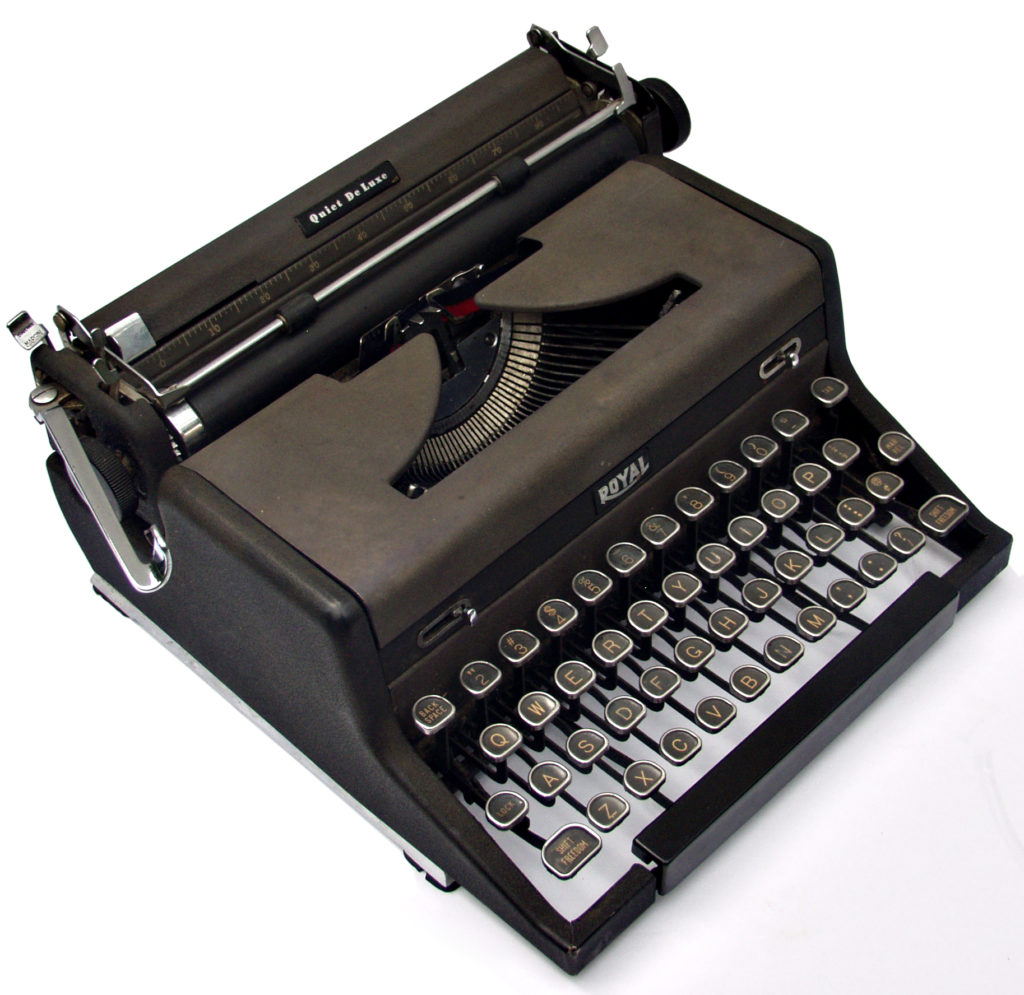

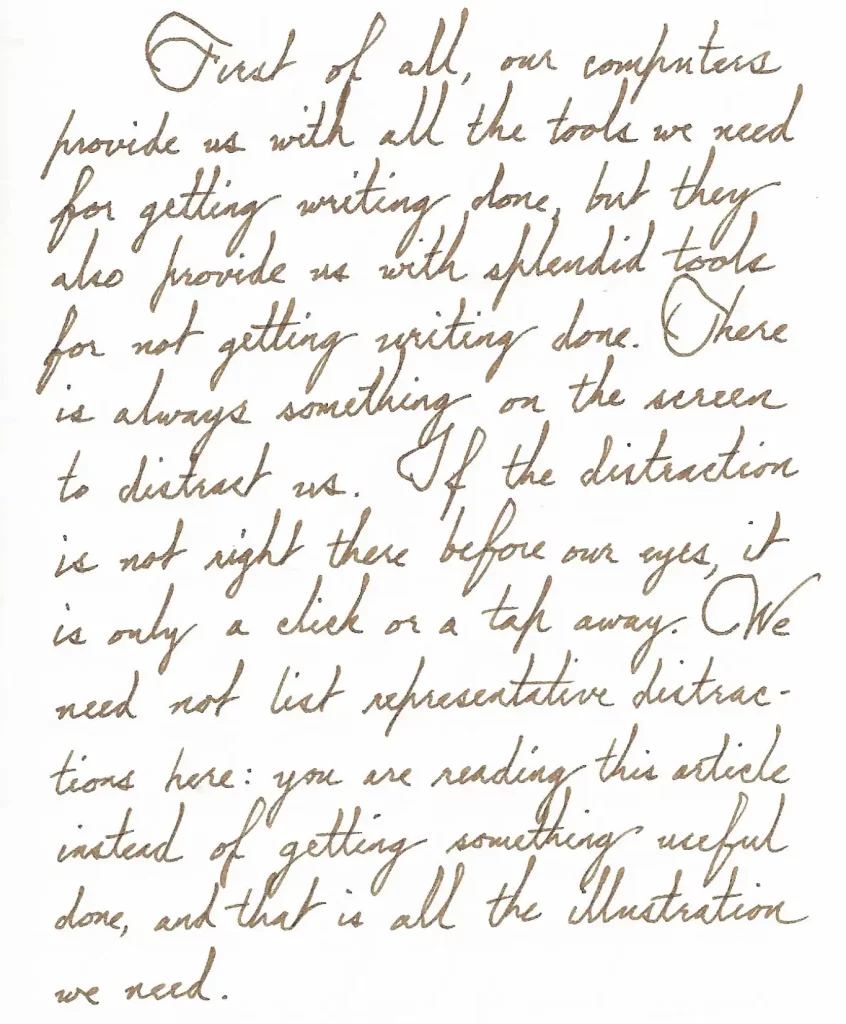
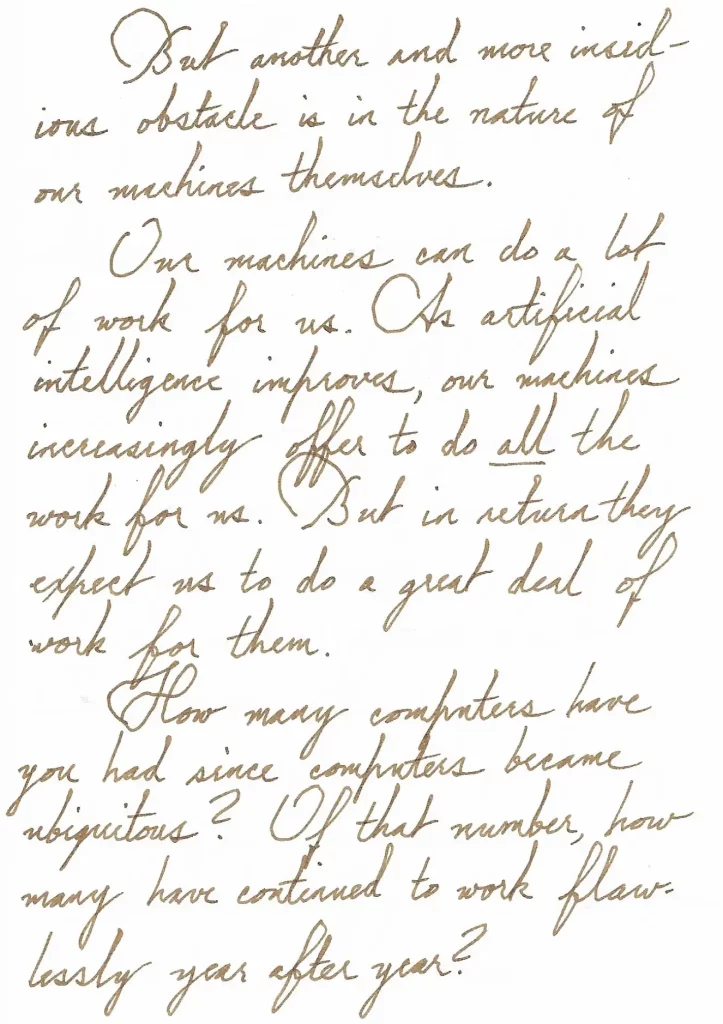

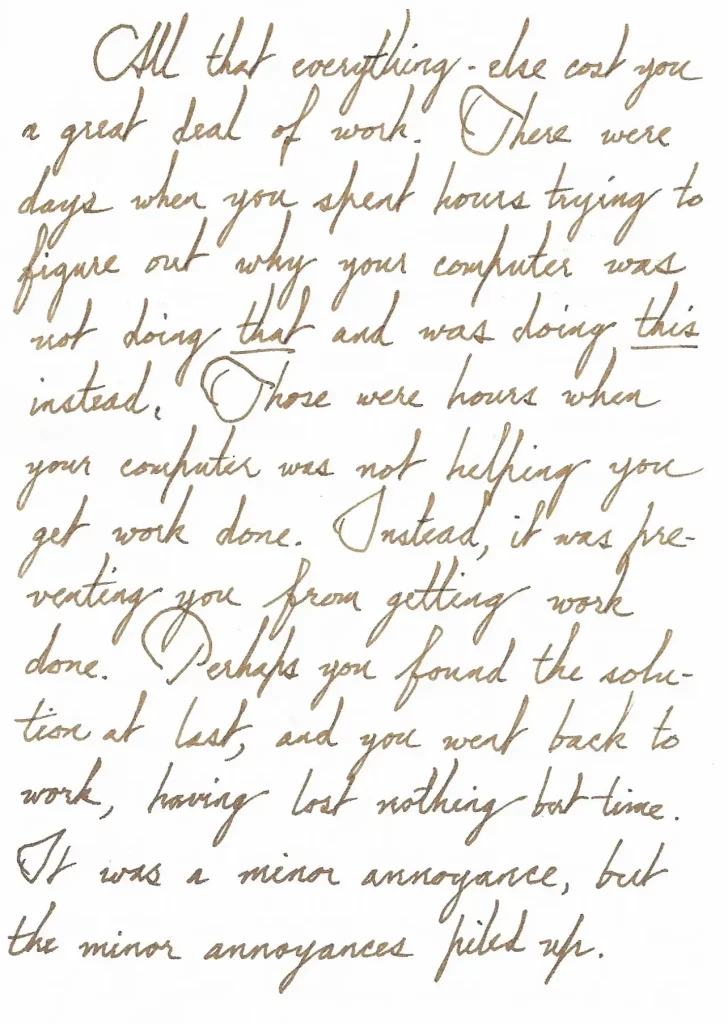
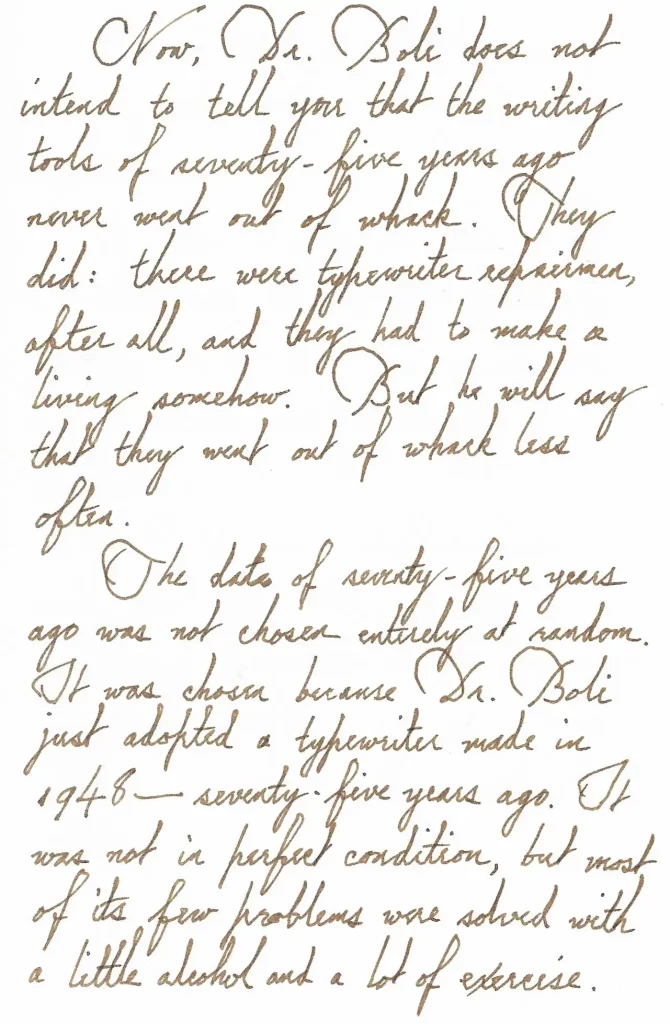
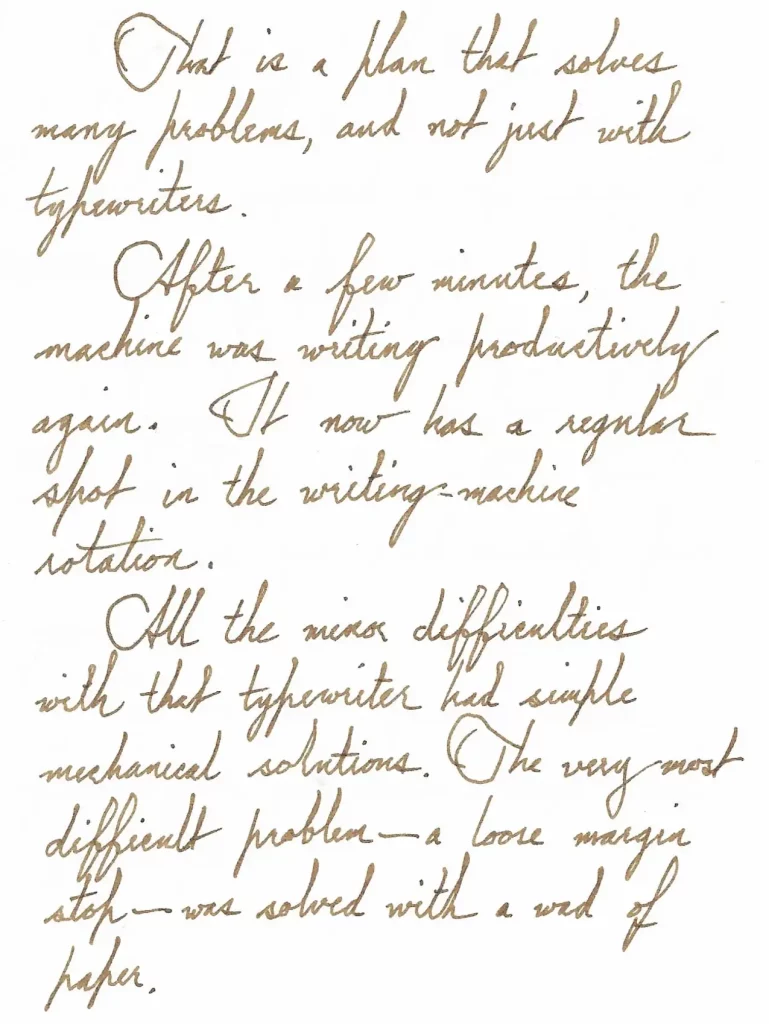
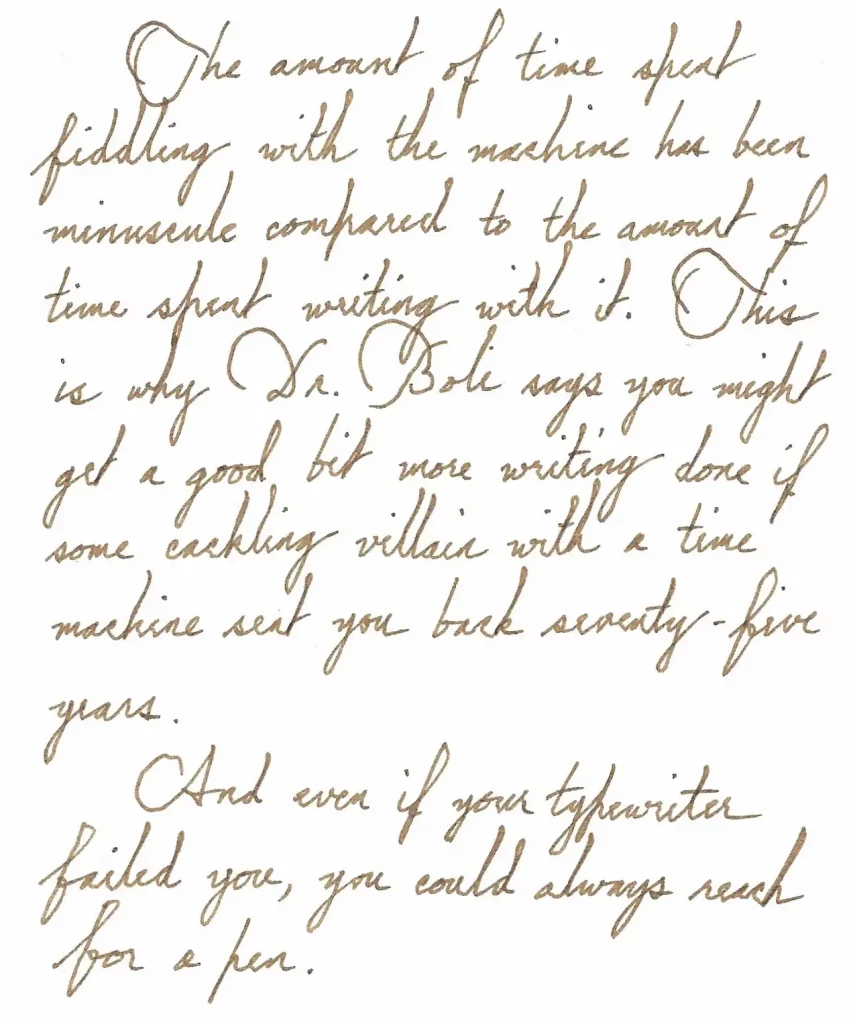
Transcribed below.
Suppose you were a writer, and suppose you were suddenly dropped back seventy-five years into an age without computers and word processors. How would you get any work done?
Dr. Boli is enough of a cynic to suggest that you might get a lot more work done than you’re getting done now.
First of all, our computers provide us with all the tools we need for getting writing done, but they also provide us with splendid tools for not getting writing done. There is always something on the screen to distract us. If the distraction is not right there before our eyes, it is only a click or a tap away. We need not list representative distractions here: you are reading this article instead of getting something useful done, and that is all the illustration we need.
But another and more insidious obstacle is in the nature of our machines themselves.
Our machines can do a lot of work for us. As artificial intelligence improves, our machines increasingly offer to do all the work for us. But in return they expect us to do a great deal of work for them.
How many computers have you had since computers became ubiquitous? Of that number, how many have continued to work flawlessly year after year?
Dr. Boli does not know what answer you will give him for the first number. But he is willing to take a guess at the second. It is none. Zero. You have doubtless owned multiple computers in the past three or four decades, and not one of them continued to work with no trouble. You got rid of each one because you had lost patience with it.
But getting rid of it was not the first thing you did. It was the last thing you did, after you had tried everything else.
All that everything-else cost you a great deal of work. There were days when you spent hours trying to figure out why your computer was not doing that and was doing this instead. Those were hours when your computer was not helping you get work done. Instead, it was preventing you from getting work done. Perhaps you found the solution at last, and you went back to work, having lost nothing but time. It was a minor annoyance, but the minor annoyances piled up.
Now, Dr. Boli does not intend to tell you that the writing tools of seventy-five years ago never went out of whack. They did: there were typewriter repairmen, after all, and they had to make a living somehow. But he will say that they went out of whack less often.
The date of seventy-five years was not chosen entirely at random. It was chosen because Dr. Boli just adopted a typewriter made in 1948—seventy-five years ago. It was not in perfect condition, but most of its few problems were solved with a little alcohol and a lot of exercise.
That is a plan that solves many problems, and not just with typewriters.
After a few minutes, the machine was writing productively again. It now has a regular spot in the writing-machine rotation.
All the minor difficulties with that typewriter had simple mechanical solutions. The very most difficult problem—a loose margin stop—was solved with a wad of paper.
The amount of time spent fiddling with the machine has been minuscule compared to the amount of time spent writing with it. This is why Dr. Boli says you might get a good bit more writing done if some cackling villain with a time machine sent you back seventy-five years.
And if your typewriter failed you, you could always reach for a pen.
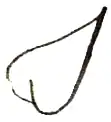
Leave a Reply